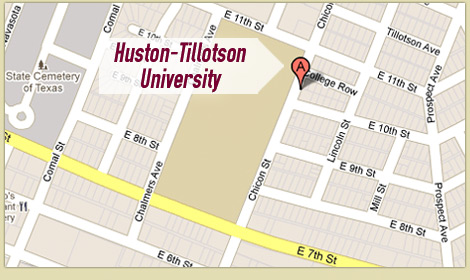
A Q&A with HT’s Dr. Rosa Mino on Her Recent Feature in Ms. Magazine
Wednesday Mar, 15 2023
This past February, Ms. magazine published Dr. Rosa Mino’s Op-Ed, “Finding Joy Again: New Mothers Need Postpartum Mental Health Help.” Dr. Mino is an Assistant Professor of Biology in Huston-Tillotson University’s Department of Natural Sciences. Read on to hear more about Dr. Mino’s academic journey to Huston-Tillotson University, the catalyst behind her Op-Ed, and the “blurry line between categories of postpartum mental health issues” that impact new mothers.
1. Please share your academic journey to Huston-Tillotson University.
I am originally from Ecuador in South America where I went to medical school for about a year and a half. I decided I wanted a Ph.D. instead so I moved to New York to obtain a bachelor’s degree in Science at the City College of New York (CUNY). After teaching and being a technician for about a year, I started graduate school as a Biomedical Sciences graduate student with a concentration in Neurobiology at the University of North Carolina at Chapel Hill. Following my qualifying exam, my mentor’s lab moved to UT Health at San Antonio. There, I completed my Ph.D. in Physiology, and proceeded to become a postdoctoral researcher at a UT Southwestern Cell Biology laboratory. After completing my research projects at UT Southwestern, I joined HT as an Assistant Professor in the Fall of 2021.
2. Please share your title, here at HT and the courses that you teach.
Assistant Professor of Biology in the Department of Natural Sciences
I teach the 2 introductory Biology classes for Bio majors (BIOL1406 & BIOL1407), Laboratory Management (BIOL4201), Upper-Level Seminar for Biology and Chemistry students (BIOL4102 & CHEM4102), and Biological Internship (BIOL4302).
3. What was the catalyst behind your writing, “Finding Joy Again: New Mothers Need Postpartum Mental Health Help?”
I am a fellow of the Op-Ed Public Voices Project at UT Austin. The Op-Ed project is a national effort to advance ideas and increase the impact of underrepresented thought leaders. My cohort and coach were extremely supportive when I mentioned my struggles. Their input, along with my personal experience made me realize the importance of bringing this topic forward.
4. Your article placed illumination on the “blurry line between categories of postpartum mental health issues” that impact new mothers. What points do you want readers to take away, upon finishing your Op-Ed?
- The U.S. needs put greater effort into identifying women who suffer postpartum mental health issues.
- There is still stigma surrounding postpartum mental health issues. Women who experience postpartum depression are not “weak”. There are so many societal, genetic, and environmental reasons why it may happen. New mothers shouldn’t let these negative views stop them from getting help.
5. What else our HT fRAMily and our Greater Austin community know about you and your research?
Our department is committed to help ameliorate health disparities in underserved communities. As part of an HBCU we feel it is our duty. We do this by research carried out in collaboration with other organizations within Austin, but also by making our students aware of the issues.





